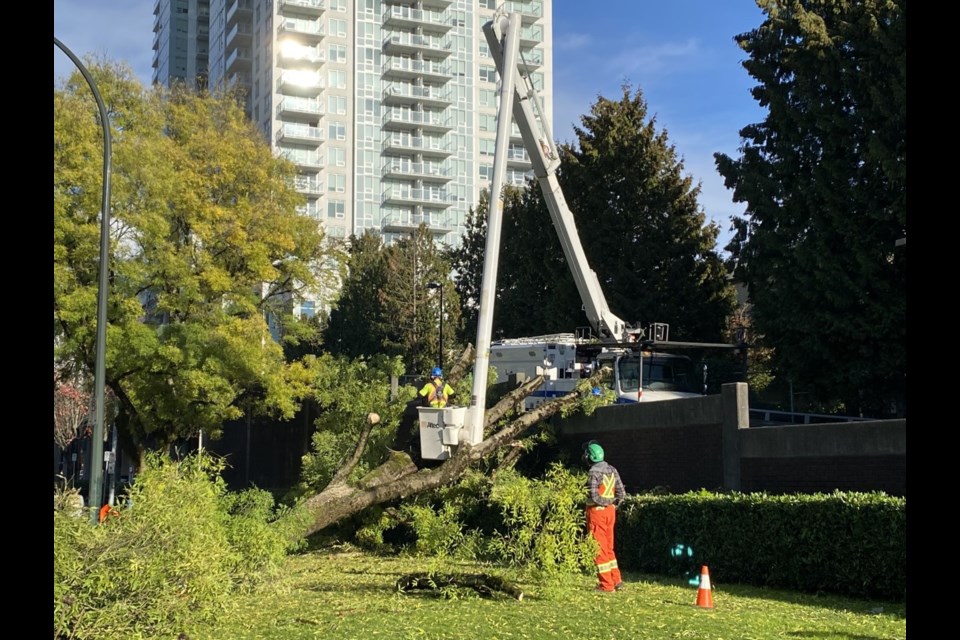The City of New Westminster is continuing to assess the damage arising from Friday night’s powerful wind storm.
A powerful windstorm roared through Metro Vancouver and the Sunshine Coast on Friday night, knocking down trees and causing thousands of British Columbian homes to lose power. Here in New West, trees were downed in neighbourhoods from Queensborough to Sapperton.
“The storm impacted all neighbourhoods across the city at various degrees,” said Erika Mashig, the city’s manager of parks and open space planning, design and construction. “To date, the Queensborough neighbourhood is recorded to have sustained the highest degree of damage.”
According to Mashig, a survey of the impacts resulting from the Nov. 4 wind storm began on the night of the storm and will continue for the remainder of this week. This includes a systematic review of all high-risk areas, including transportation and utility corridors and the parks and open space system.
“The damage to public infrastructure, private property and within parks and open spaces has been documented,” she said. “We will continue to monitor and document damage as staff complete the systematic review, which will continue for the remainder of this week.”
Mashig said city staff from multiple departments were called in over the weekend to contribute to the storm response efforts.
“The city also relied on contractors to assist with emergency tree removals,” she said. “Clean-up of debris is expected to take several weeks to complete.”
Friday night’s windstorm came on the heels of a lengthy summer drought that extended into early October, followed by a couple of weather systems that brought heavy rainfall to Metro Vancouver.
“The wind storm was unexpected and caused significant impacts to New Westminster and other areas of the region,” Mashig said. “Staff are observing and documenting site-specific conditions that may have contributed to tree failure. We anticipate a combination of factors related to climate change contributed to tree failures such as dry soil conditions and late leaf retention.”
Mashig said the city is proactively working to increase the resilience of the urban forest to climate change and maximizing the benefits of trees (ecosystem services) for the city through species selection and management plans.
Rod Carle, general manager of the City of New Westminster’s electrical utility, said crews were out night until almost noon on Saturday restoring power.
“We had a number of outages across the city,” he said. “I believe the majority of them were from trees or tree branches.”
Restoring power can take a bit of time, as crews have to be called, they have to patrol the whole line before restoring power in an area and they have to follow safety protocols, Carle said.
“We had everybody in,” he said. “The concern for me was, with the timing, they are only allowed to work only so many hours before they are have to take a break. Sometimes it’s difficult when the customers are calling and wanting power back on.”
Carle said he was very pleased with the way crews responded to the outages. Given the recent drought condition, he thought the city weathered the windstorm quite well.
“The way the winds were blowing, I expected more,” he added. “I think we were very fortunate.”

